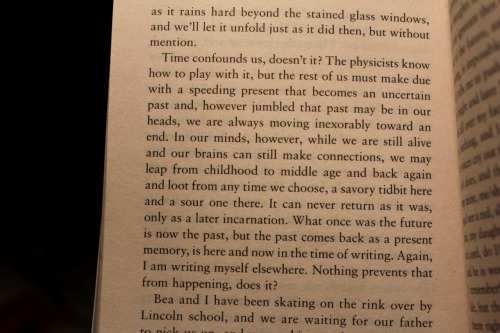Tuesday, September 13, 2011
Fiction Tuesday - The summer without Men
synopsis: A theatrically manic poet turns heartbreak into an intellectual endeavor in Hustvedt's intellectually spry latest (after The Sorrows of an American). Fresh out of the hospital at age 55 following a breakdown brought on by her husband's departure for a young colleague referred to as "The Pause," award-winning poet and Columbia professor Mia Fredricksen flees Brooklyn to spend the summer in her Minnesota hometown. There she is in the company of her mother and four other feisty old ladies, the young mother next door, and the seven hormone-addled pubescent girls enrolled in her poetry class at the local arts guild. Mia sorts out her agony as only a scorned woman with a Ph.D. in comparative literature can—by pouring it through a sieve of poets, philosophers, and critical theorists. At times these references eclipse the presence of the narrator herself, but even this absence becomes the basis for philosophical rumination, as Mia corresponds online with the anonymous—and at times abusive—Mr. Nobody. Though initially trapped in a claustrophobic cerebral solitude, Mia opens up, and, in so doing, lets in some much needed air to a constricted narrative, so that instead of being another novel of a woman on the brink, this becomes an adroit take on love, men and women, and girls and women.
This is a very literary piece of work. The author is so poetic and vibrant in her words. A part of you wants to see how vivid she uses the language, thus you might lose a whole part of the story, at times. Also one might find some of the characters blending. The book has so many wonderful qualities to it. Yet, one might wonder if it completely delivers.
“Libraries are sexual dream factories. The languor brings it on. The body must adjust its position—a leg crossed, a palm leaned upon, a back stretched—but the body is going nowhere. The reading and the looking up from one’s reading brings it on; the mind leaves the book and meanders onto a thigh or an elbow, real or imagined. The gloom of the stacks brings it on with its suggestion of the hidden. The dry odor of paper and bindings and very possibly the smell of old glue bring it on.”-Siri Hustvedt
Subscribe to:
Post Comments (Atom)




Such an interesting library quote. She's a very unique writer. I like her husband's work too.
ReplyDeleteShe has such a beautiful way with words. I definitely need to check this book out. :)
ReplyDeleteShe is very literary.
ReplyDeleteI like the quotes.
ReplyDeleteI read that last quote to my boss..hahahah..it was kind funny.
ReplyDeleteshe is such an amazing writer.
ReplyDelete